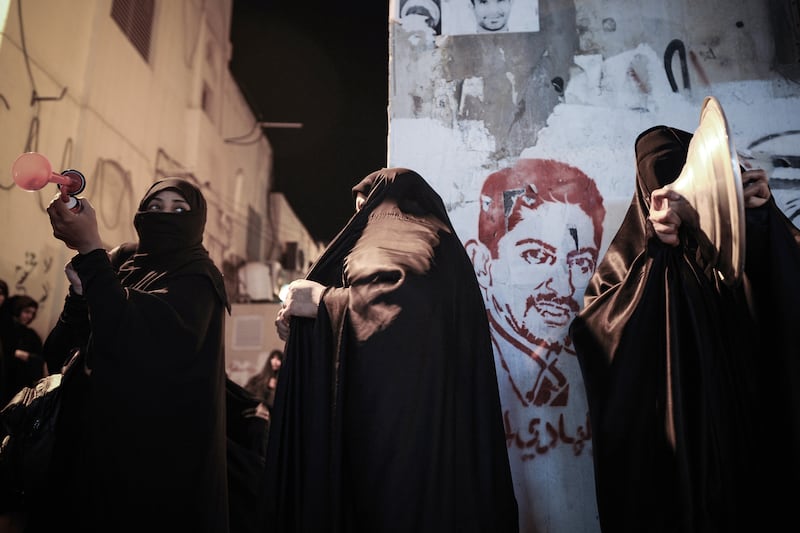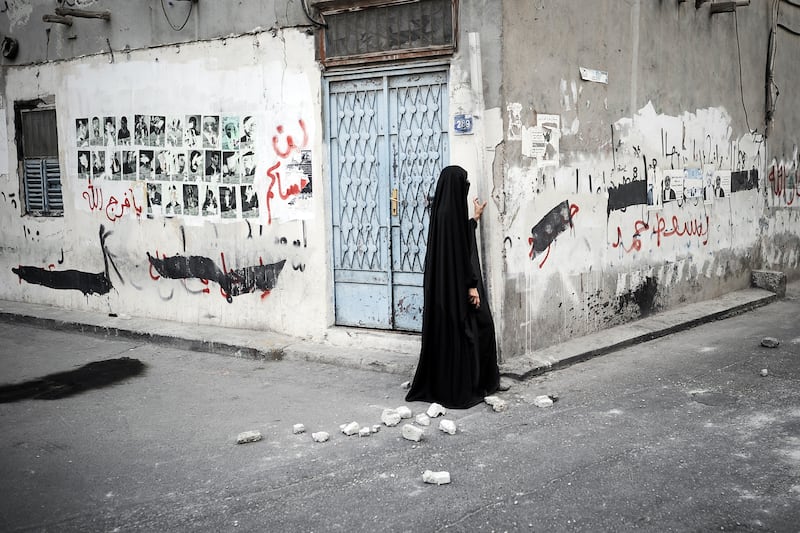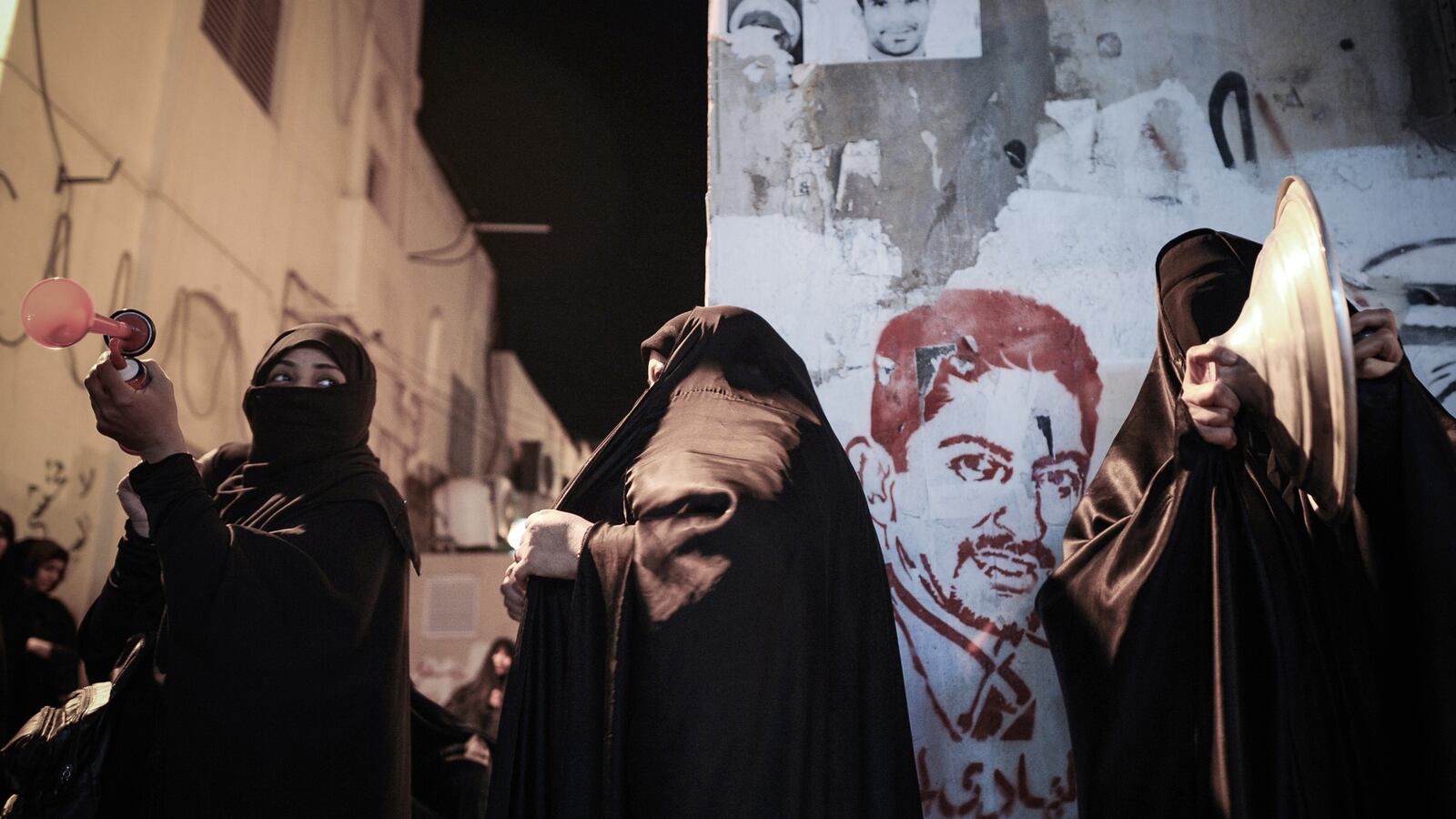Pearl Roundabout was once the pulse of the Bahraini opposition—like Cairo’s Tahrir Square or Mohammad Bouazizi Square in Tunis. In the earliest days of the Arab Spring uprisings, it was a vibrant center for self-expression, and saw a wave of protests—and bloodshed—as Bahrainis joined in a regional call for democracy and freedom.

Two years later, Bahrain’s iconic square is lifeless—sealed off by security forces and torn apart by bulldozers. The pearl monument that once stood majestically at its center is gone, demolished and paved over, with the government saying it was “desecrated” by “vile” protesters. It was even renamed Al Farooq Junction—a tribute to Omar ibn Al Khattab, a historical figure viewed negatively by Shias, the sect of Islam to which the majority of Bahrainis belong.
Despite efforts by the government to erase evidence of any challenge to its authority, Bahrainis spilled into the streets to mark the second anniversary of Saudi-led Gulf forces entering Bahrain to help their ally, King Hamad bin Isa Al Khalifah, suppress a wave of dissent. Dozens were reportedly injured in clashes with security forces Thursday, according to Al Wefaq, the country’s leading opposition party. Police fired tear gas at protesters as a group of youths confronted them with Molotov cocktails. Protests dubbed “Never Surrender” kicked off again Friday.
The government described the unrest as “acts of domestic terror, including the theft and torching of cars, and the street blockades,” according to an Interior Ministry statement. Several policemen were injured in the clashes, the government said.
Bahrain, a staunch American ally and home to the U.S. Fifth Fleet, has lent a unique story in the Arab Spring narrative. King Hamad, a Sunni in the Arab Gulf’s only Shia-majority nation, maintains his authority, often through harsh crackdowns, with the solid support of the West and surrounding Gulf states, which assert that Iran is using Bahraini Shias to infiltrate the Arab world. Saudi Arabia, which is connected to Bahrain via a causeway, has been especially fearful, as it is home to a restive Shia population in its Eastern province. Bahrain, a tiny island in the Persian Gulf, is not wealthy from natural resources like fellow Gulf Cooperation Council nations Saudi Arabia, Qatar, and the United Arab Emirates; it has had to rely on aid from its neighbors since turmoil began in 2011.

From a meeting in Riyadh Wednesday, Arab Gulf interior ministers released a joint statement denouncing “logistic aid supplied by Iran to terrorist operations in Bahrain” as well as in Yemen. Tehran lashed back at accusations by the GCC last week, with Iranian Foreign Ministry spokesman Ramin Mehmanparast saying at his weekly press conference that the claims are “made in order to escape from the real problems and will bear no results.”
“When you say it’s a Shia uprising, it is easier to blame Iran than if you say it’s a Bahraini uprising,” said Maryam Al Khawaja, acting president of the Bahrain Center for Human Rights and co-director of the Gulf Center for Human Rights. “People didn’t come out because they are Shia. They came out because they are human beings. They are demanding a constitution for everyone, they are demanding homes for everyone, jobs for anyone.”
An independent inquiry led by U.N. war crimes official Cherif Bassiouni into deadly clashes at Pearl Roundabout in 2011 revealed a calamitous picture of brutality, including torture and extraction of forced confessions by state security. King Hamad has accepted the results and vowed to rectify the situation. So far, only four low-ranking officers and one first lieutenant have been convicted in the deaths of two protesters and serious injury to a third. The Bassiouni report also said there was no clear evidence that Iran had incited the unrest, a finding the government has rejected.
Many of the Gulf monarchies, including Bahrain, attempted to quell dissent early on through concessions—though some were more successful than others. Days after Egyptians successfully toppled President Hosni Mubarak, King Hamad freed some 250 political prisoners, and extended an offer for dialogue. He has also announced constitutional amendments that would offer Parliament greater authority in government. Last week the king appointed Crown Prince Salman bin Hamad bin Isa al-Khalifa, a moderate, to the post of deputy prime minister, a move that has raised hopes for some that a resolution to two years of unrest is in sight.
“The Gulf monarchies have managed to spend and repress their way through in this particular Arab Spring thus far, but tensions on the street continue to build despite expectations,” said Christopher Davidson, an expert on Middle East politics at Britain’s Durham University and author of After the Sheikhs: The Coming Collapse of the Gulf Monarchies.
But for many in Bahrain, it was too little, too late. New York-based Human Rights Watch said last month that the Bahraini government has stalled on key reform promises and failed to release unjustly imprisoned activists and hold accountable high-level officials responsible for torture. Al Khawaja’s father, Abdulhadi, is among eight activists and opposition figures sentenced to life imprisonment for allegedly plotting to overthrow the state. Her sister Zainab was sentenced to three months in prison for allegedly insulting a public employee.
One young activist said he is fearful that the government has succeeded in turning a struggle for freedom into a sectarian battle. The regime offers its supporters "jobs and security and Army protection, plus houses and a future for them and their sons," said Abu Mohammed, an academic and businessman. "Bahrain is somehow divided now, not because of the revolution itself, but because the regime is using sect to divide us."






